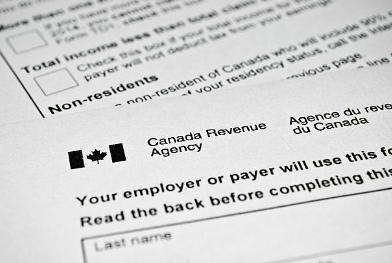How the New Passive Income Rule Affects Your Corporation
Debbie Bongard - Sep 25, 2019
Recent changes to the Income Tax Act have changed how professional corporations are taxed. This article explores the new passive income rule and what it might mean for your practice.

Canadian physicians who own incorporated practices experience significant tax advantages. Firstly, when physicians incorporate their practice, the first $500,000 of their active income is taxed at a small business rate – a rate that is notably lower than the general corporate tax rate. The small business tax rate may differ slightly depending on the province but is generally around 9%. Secondly, earnings are able to grow in tax-sheltered corporate accounts. Recent amendments to the Income Tax Act, however, have changed this and now outline how passive income earned on various corporate holdings are taxed.
What is passive income?
Essentially, passive income is money that you earn regularly with little to no effort involved.
If you are an incorporated professional, such as a physician, the revenue that you earn through the sale of your service is considered active income and may be held in corporate accounts. These earnings generate passive income through various means including interest, dividends, and income from capital gains. This income is earned with very little active effort or attention.
The new rules
There have been some recent changes to rules governing taxation of passive income for professional corporations. In June 2018, the Canadian Government passed new legislation that outlines how passive income will now be taxed.
According to the government, the new passive income rules are intended to encourage business owners to focus on developing the active portion of their business, rather than relying on accumulating income from passive investment instruments. These changes to Canadian tax legislation, effective January 2019, have changed the rules of the game for Canadian physicians that own private professional corporations.
Under the new passive income rules, as the amount of income you receive passively increases, the amount of your active business income that is eligible to be taxed at the small business rate decreases. The amount of active income eligible for the small business tax rate is reduced to $0 when the professional corporation’s annual passive income from the previous year exceeds $50,000.
For every additional dollar exceeding $50,000 in passive income earned in a given year, the amount of active income eligible for the small business tax rate will be lowered by $5 the following year. Any earnings that exceed this threshold will be taxed at the general corporate tax rate, rather than the small business tax rate.
Is your professional corporation affected?
A key factor to determining if you are affected by this new rule is your net professional income. Net professional income is total earnings, minus salaries and other eligible expenses.
$150,000 – (Net Professional Income) = Passive income allowed before impact
5
Knowing how much passive income your corporation is allowed to make before being impacted by the new rules can allow you to shift corporate savings into other saving vehicles (i.e. TFSAs, RRSPs, spousal RRSPs, RESPs, etc.) so you can still work towards your long term financial goals without generating more passive income for your corporation and being subject to greater taxes.